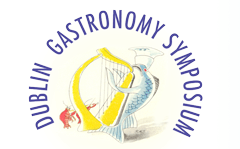Start Date
29-5-2024 12:00 PM
End Date
29-5-2024 12:15 PM
Description
This article investigates the intersection of language and gastronomy in European Jesuit missionaries’ language learning materials in China during the late sixteenth to the eighteenth centuries. Through the analysis of three key texts, the article emphasizes the significance of food-related content in fostering linguistic and cultural understanding. It provides a thorough examination of how these texts facilitated cultural exchange, highlighting the role of food in creating a space for dialogue between European and Chinese cultures. This article introduces gastrolinguistics, the combination and interaction of food and language, to explore how missionaries adapted to and learned about Chinese culture and introduced other cultures to China. Gastrolinguistics operates as a vehicle that concurrently carries knowledge of food and language, while also emerges as a consequence of intercultural engagements. Thus, it bears witness to these encounters and evolves into a realm where such encounters happen.
Creative Commons License

This work is licensed under a Creative Commons Attribution-NonCommercial-Share Alike 4.0 International License.
DOI
https://doi.org/10.21427/q4h2-xg60
Included in
Anthropological Linguistics and Sociolinguistics Commons, Asian History Commons, Chinese Studies Commons, Cultural History Commons, European History Commons, Food Studies Commons, History of Christianity Commons, History of Religion Commons, Linguistic Anthropology Commons, Missions and World Christianity Commons, Other Arts and Humanities Commons, Social and Cultural Anthropology Commons, Sociology of Religion Commons
Creating a Gastrolinguistic Space: Food in Language Learning Materials of Jesuit Missionaries during the Sixteenth to the Eighteenth Centuries
This article investigates the intersection of language and gastronomy in European Jesuit missionaries’ language learning materials in China during the late sixteenth to the eighteenth centuries. Through the analysis of three key texts, the article emphasizes the significance of food-related content in fostering linguistic and cultural understanding. It provides a thorough examination of how these texts facilitated cultural exchange, highlighting the role of food in creating a space for dialogue between European and Chinese cultures. This article introduces gastrolinguistics, the combination and interaction of food and language, to explore how missionaries adapted to and learned about Chinese culture and introduced other cultures to China. Gastrolinguistics operates as a vehicle that concurrently carries knowledge of food and language, while also emerges as a consequence of intercultural engagements. Thus, it bears witness to these encounters and evolves into a realm where such encounters happen.
